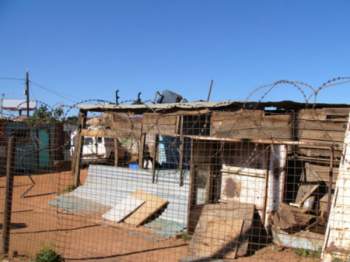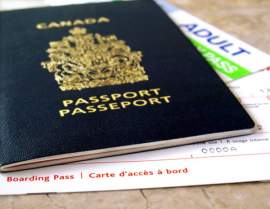
Polish Refugees After Martial Law

As a result of , those of Polish descent were no stranger to status. The start of the war is commonly identified by historians with Germany's invasion of Poland, so by virtue of this, Polish refugees were some of the first refugees to make their exit from their their home country to avoid complications with the control of a larger power. Shortly after the initial incursion of Axis forces into their country, however, Poland was placed under the authority of another military.
This time around, Poland was under the dominion of Communism at the hands of Soviet Russia. Thus, there was no invasion in an traditional sense; Poland was a satellite of the Soviet Union, and so any military intervention made by Soviet troops was, in effect, the Soviet government dealing with its own constituents. Nonetheless, as with the defeat of the in the 1950's and the halt put to the in the 1960's, the events surrounding the "state of war" in 1980's Poland also set the stage for hundreds of thousands more asylum refugees to seek refuge in a land outside their home country.
The origins of the Soviet crackdown on the people of Poland were formed with a growing political movement among the labor unions of the nation, spearheaded by Lech Walesa, a political leader and later human rights activist.
The organization, known as Solidarity, was a broad social and political movement whose primary motivation was to move Poland away from the influences of Soviet Communism. In due time, though, authorities put a swift stop to the development of these anti-Communist leanings within Poland, and instituted a period of martial law in the country under the guise of preventing civil unrest and promoting economic solvency.
Solidarity members and the leaders of other prominent Soviet resistance groups were arrested and detained, communications and travel between Poland and the outside world were suffocated, six-day work weeks and curfews were imposed, and universities and businesses were put under police control. Throughout the military occupation, deaths of protesters were common, as were Warsaw Pact tanks in Polish cities.
As can be imagined, given the fatalities and the dissolution of liberties, refugee status was on the minds of many Poles. When conditions of martial law were lifted and economic conditions failed to improve, many members of the Polish workforce left the country, becoming asylum refugees in the process.
All told, the number of Polish asylum refugees to flee to other countries totaled over 700,000, and many of them sought official refugee status in other countries. Neighboring countries like Austria saw more than a doubling of their national acceptance rate of people falling under refugee status. From their new location, displaced Polish asylum refugees continued their tradition of non-violent protest in the wake of Soviet repression.
Eventually, for their troubles, those who remained true to the cause of Solidarity and those who acknowledged the refugee status of the exiled Polish, especially the Roman Catholic Church, helped to weaken support for Communism in the Eastern Bloc. Upon the recognition of a free, democratic Poland, a major blow to the Iron Curtain was dealt.
NEXT: Rwanda Refugees





















